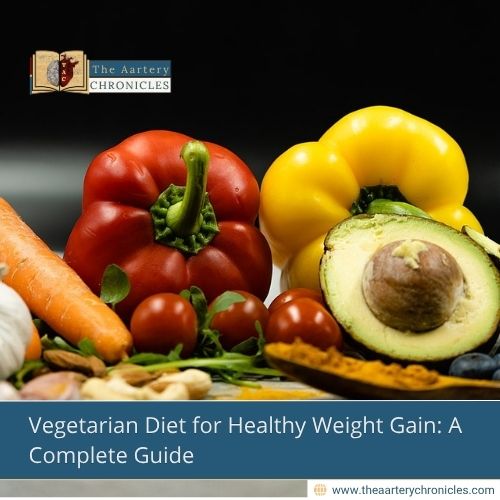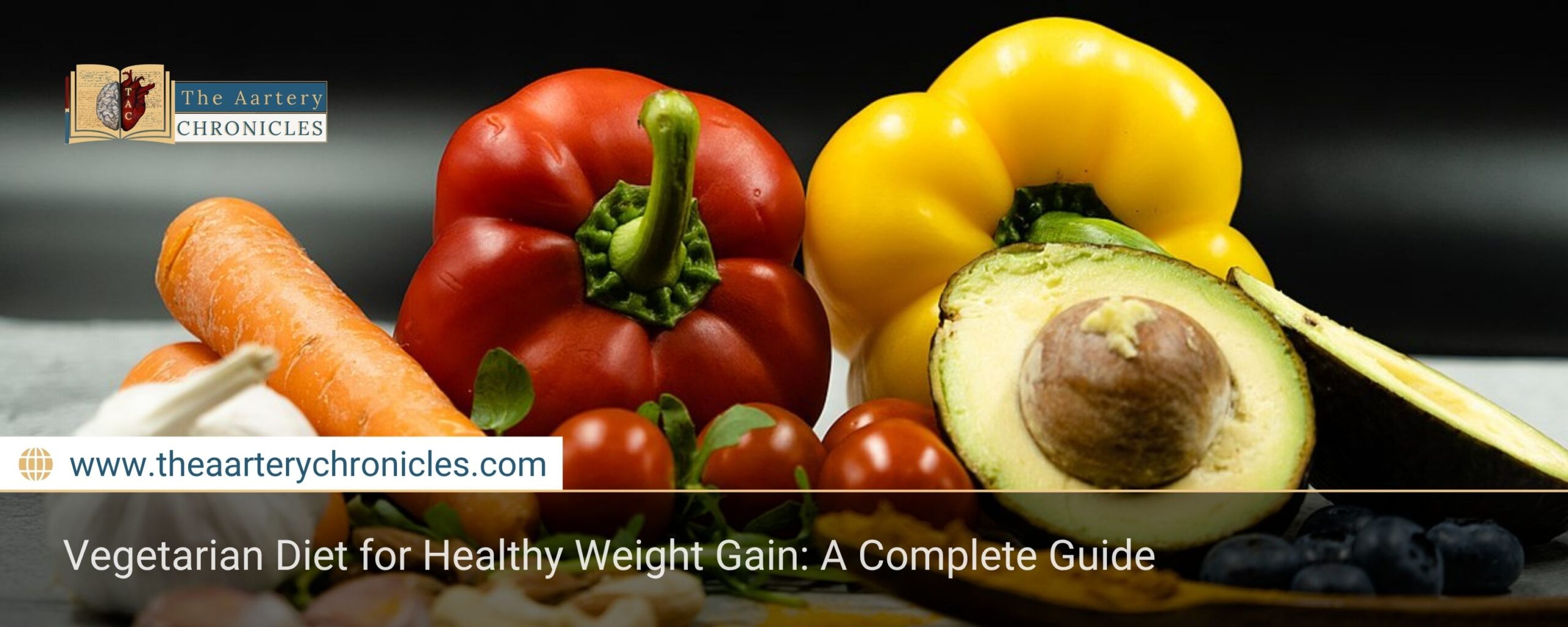

Vegetarian Diet for Healthy Weight Gain: A Complete Guide
We all wish to look our best – be it a thin person looking to gain weight or an obese person looking to losing weight, which differs for each individual.
Did you know that gaining weight is tougher than losing weight? That is correct – gaining weight does not mean dosing up on fatty fried food but rather choosing nutritious meals and strength training workouts to increase muscle mass.
Why vegetarian diet?
The vegetarian diet is choc-a-bloc with nutrients, apt for gaining weight. It alleviates health risks like diabetes, cardiovascular issues, chronic inflammation or even some types of cancers. It consists of higher fiber content foods like fruits, whole grains, vegetables, nuts, seeds, and legumes for a healthy gut. Fiber rich fruits like bananas, artichokes and onions are fermentable fibers that produce short-chain fatty acids to lower inflammation. Plant based foods are rich in antioxidants like polyphenols, lycopene and Vitamin C that lower inflammation which reduce risks of chronic ailments like degenerative disease and type 2 diabetes.
Foods for healthy weight gain
Let us see some of the foods that aid in the process:
1) Proteins: High protein foods rich in nutrients build muscle essential for gaining weight. E.g. dairy products like whole milk, cheese and yogurt/ plant based proteins like chickpeas, lentils, quinoa, soy, paneer,
2) Fats: Healthy fats in meals improve cardiovascular health, support absorption of nutrients and aid brain functions – as part of the balanced nutrition for weight gain.
- Healthy fats like avocados, nuts (almonds, walnuts etc.) and seeds (chia seeds), ghee contain essential fats and extra calories.
- Nut butters like almond butter and peanut butter
- Healthy oils like olive oil, coconut oil
3) Carbohydrates: The following carbohydrates increase your energy essential for strength training as part of the weight gain process.
- Whole grains like brown rice, oats, quinoa, barley
- Starchy vegetables like potatoes, sweet potatoes,
- Legumes like peas, lentils, beans
4) Micro nutrients: Foods containing iron, zinc, Vitamin B12 boost energy and good for health.
Healthy snacking: Curb the in-between-meals hunger by having calorie rich, nutritious snacks like
- Protein and pre-biotic rich Greek yogurt + granola + fruit
- Easily consumed calorie rich smoothies made of milk, fruits, nut butter, protein powder
- Rich in calories and healthy protein bars, whole grain crackers, trail mix paired with hummus.
Meal plan: This is what a vegetarian meal looks like:
Breakfast : 2 vegetable Parathas, curd and handful of nuts
Mid-morning snack : Banana smoothie with almond butter
Lunch : 1 bowl dal (lentils), 1 bowl seasonal vegetable curry, 2 chapatis , ½ bowl rice, salad
Evening snack : Roasted makhana and coconut water
Dinner : 1 bowl vegetables, 2 chapatis, salad
You can try other options and combinations as suggested by your dietician, who will advise you and curate a balanced diet for your weight gain process, keeping in mind your age, medical history, lifestyle and genetics.
Making lifestyle changes is not easy as it requires consistency and dedication.
1. No unhealthy fats
- No unhealthy fats:There are some fatty foods to be eliminated from your life like :
- No sugar: Sugar and sugary foods like candies, aerated beverages, cookies result in fat gain rather than muscle mass.
- No processed food: Processed foods like chips, French fries etc. have high sodium content and unhealthy fats
- No low quality carbohydrates: White rice, white bread, sugary cereals are devoid of fiber and nutrients and unhealthy
- No alcohol: Avoid alcohol as it imbalances hormones, disrupts digestion, and affects muscle recovery
2. Healthy habits
- Drink 2-3 liters of water everyday
- Include fresh seasonal fruits and vegetables
- Have proteins first and vegetables in the end of meals
- Do strength training / exercises that increase muscle mass
- Get proper sleep
- Reduce stress
- Digitally detox once a day
- Laugh and be happy
- Make time for your hobbies
- Stay consistent and maintain your weight as per your BMI.
Healthy weight can be gained by daily intake of 300-500 calories, high calorie milkshakes and smaller meals throughout the day in addition to the above habits.
Increasing muscle gain is essential for weight gain and you should diligently follow your strength training under guidance of a qualified gym trainer, keep a record of your training, monitor your progress and tweak your training accordingly. And last but not the least, your calorie intake should exceed the calories used to achieve desired weight.









